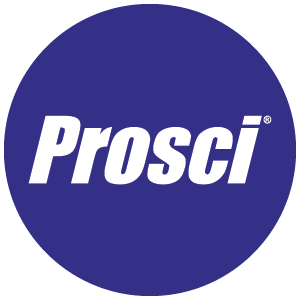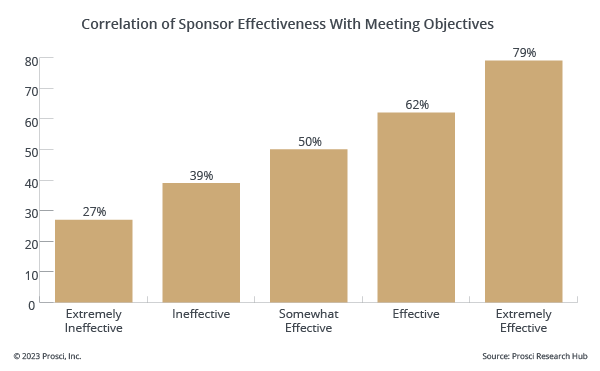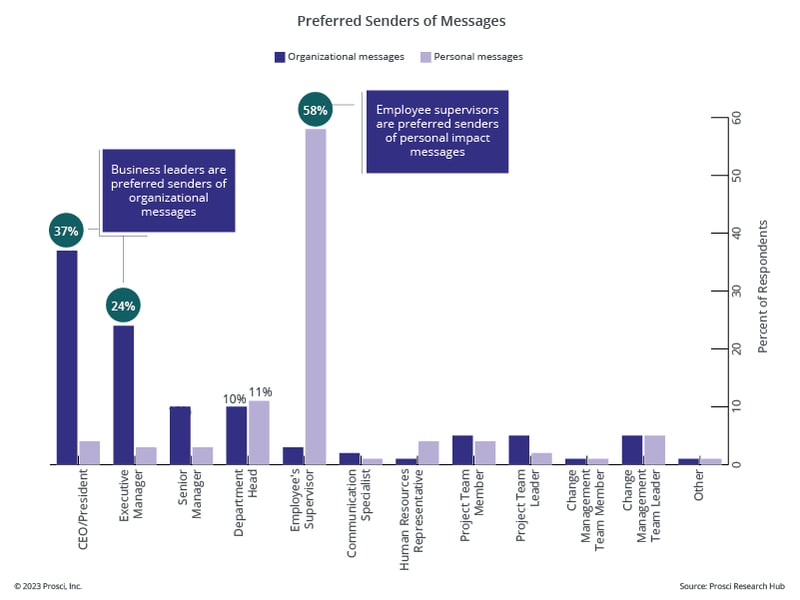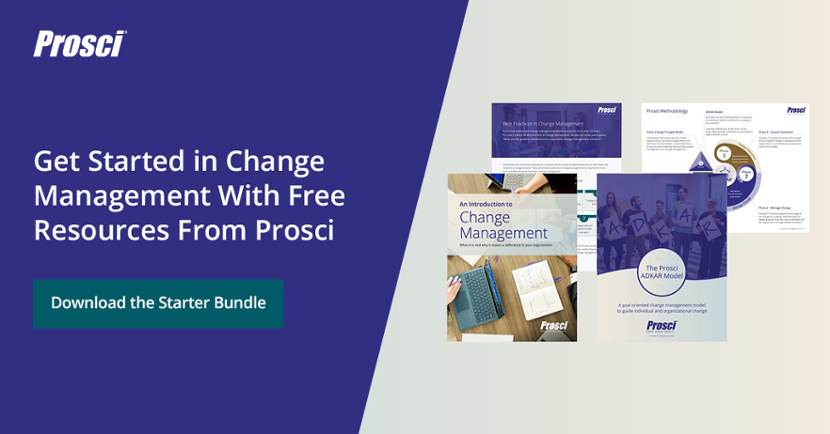Avoid These 5 Change Management Obstacles

3 Mins
Updated: December 11, 2023
Published: March 16, 2022

Leading your organization through successful change is not easy, but we can learn valuable lessons from others, thanks to Prosci's Best Practices in Change Management benchmarking research. Participants offer invaluable insights and data on what works when implementing change and, perhaps more importantly, what does not. Armed with insights from change management professionals around the world, you can start to anticipate and avoid common obstacles to success.
Change Management Obstacles
Prosci research reveals five common obstacles in change management:
- Lack of executive support and active sponsorship
- Lack of effective communication led to misalignment
- Lack of change buy-in and solution support created resistance
- Limited knowledge and resources for change management
- Change-resistant culture and attitude
Start applying change management today with
Prosci's free Change Management Starter Bundle.
1. Lack of executive support and active sponsorship
Participants in Prosci's Best Practices in Change Management research indicated that many executives don't understand their role in change management, the resources required, or purpose of the change. This misunderstanding leads to inconsistent communication, visibility and transparency within the organization. Additional barriers emanating from executive sponsorship include dwindling support after go-live, a general lack of buy-in for the change, and infrequent engagement.
This is the largest obstacle reported by participants. As with previous studies, it reveals the significant impact sponsorship can have on change management work. In the same way that effective sponsorship can mobilize and activate an organization, poor sponsorship can inhibit and delay progress. Employees interpret an absent or inactive sponsor as an indication of how important or unimportant the initiative is.
Analysis of data from the 12th Edition research report also shows a direct correlation between the effectiveness of sponsorship and the likelihood of meeting project objectives.

2. Lack of effective communication led to misalignment
Without effective communication—that which is transparent, builds awareness, and aligns with organizational goals—confusion and misalignment becomes an issue for groups impacted by the change. As a result, participants spend more time and resources to clarify roles, communicate expectations, and encourage buy-in.
Effective communication during change starts with using preferred senders. Employees prefer to receive business-level messages about the change from leaders at the top of the organization. When it comes to personal messages about the change, such as answers to "What's in it for me?" employees want their immediate supervisor to communicate with them.

3. Lack of change buy-in and solution support created resistance
The most likely individuals to resist the change are those who display limited engagement and an unwillingness to adopt new processes because they do not understand the change and fear the “unknown.” Such employees feel comfortable with their current systems and lack an overall desire to adopt the changes.
Resistance is strongly linked to impacted people and groups not understanding the business reasons for a change. Creating buy-in for the change is a key step in any successful change management initiative and has been a pillar of the Prosci Methodology from its inception. Creating buy-in starts by sharing a compelling "why" for the change up front, including both the business reasons for the change and answering “What’s in it for me?” (WIIFM) for each employee.
4. Limited knowledge and resources for change management
Across all levels of the organization, participants reported a lack of knowledge about what change management is and the value it brings to the organization. This makes acquiring the resources and budget necessary for success more difficult. In these cases, leadership and front-line managers are unwilling to assign budget or personnel to a change management project because they do not see the value in change management.
Change management is not an activity that can be accomplished in one person’s free time or "off the side of a desk." In fact, Prosci research demonstrates a strong correlation between effective resourcing for change management activities and meeting project objectives. In order to bring about successful adoption and usage, realize the benefits of a change, and avoid the cost of not changing, change management needs to be resourced according to the scope and scale of the change.
5. Change-resistant culture and attitude
A history of failed changes, the presence of silos, and resistant behaviors results in lower performance, trust and engagement within the organization. A culture rife with poor attitudes and internal politics encourages individual priorities, disruptive thinking, and resistance to change. A shift in employee mindsets would be fundamental to shifting the overall culture and environment of the organization.
Due to the complex nature or a history of failed changes, an organization's culture may foster resistance to change and change management. Internal politics, poor behavior control, and personal agendas can also help shape a change-resistant culture.
In addition to effectively managing individual transitions, successful change management depends on the environment where the change is taking place. It is also critical to manage resistance as part of a structured approach to change management.
Success With Organizational Change
Understanding the most common obstacles practitioners face during change can help you anticipate and avoid roadblocks as you start your journey to change success. Get even more research insights, including the greatest contributors to change success, when you watch A Smorgasbord of Insights From Prosci's Latest Best Practices report.



